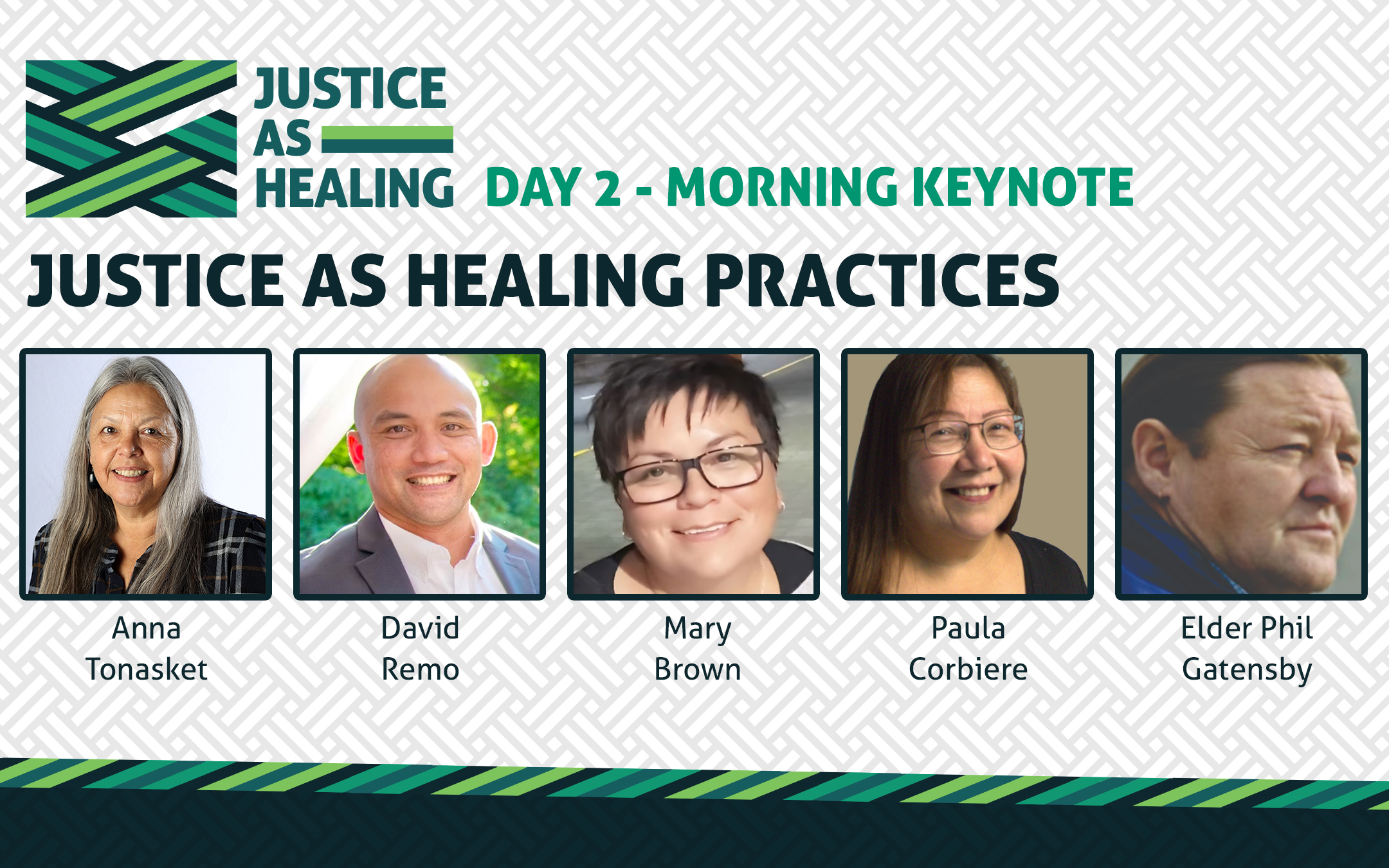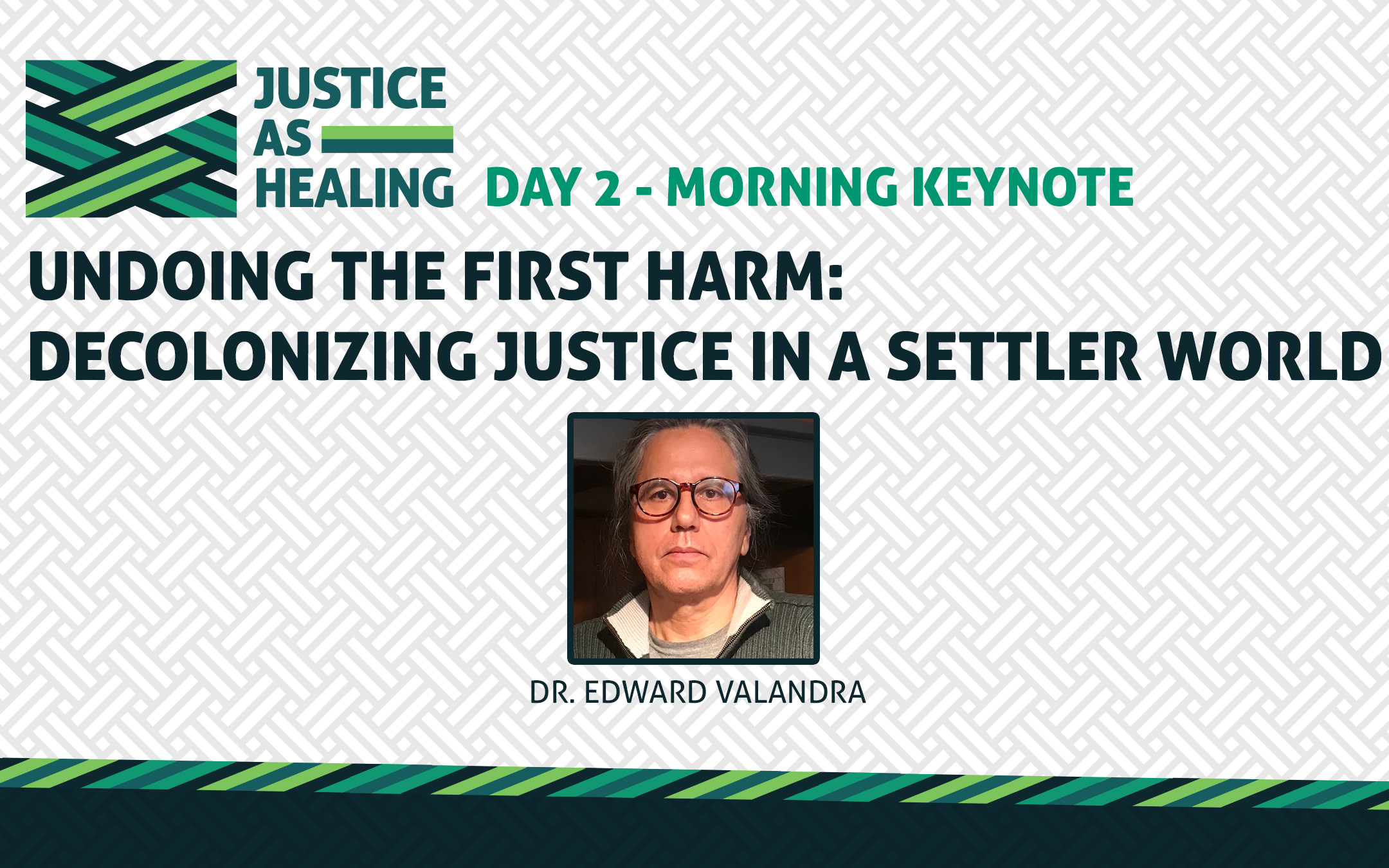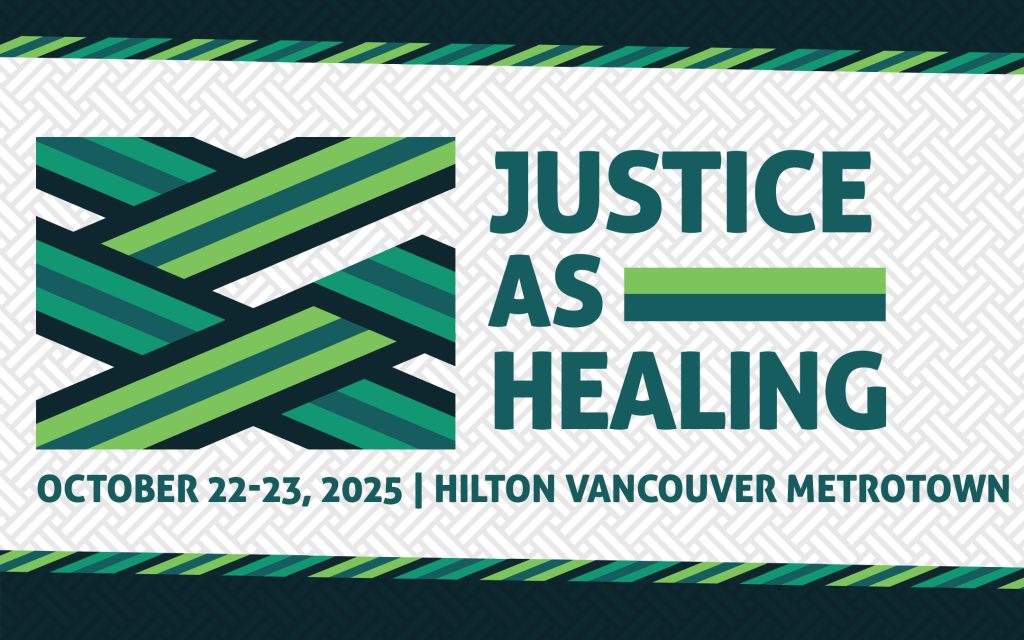Keynote Presentations

October 22, 2025 | Morning Session Keynote | Plenary room
Restorative Justice in Education
This dynamic keynote panel brings together leading experts and practitioners in the field of restorative justice (RJ) to explore its transformative potential within educational settings. The panel will delve into how restorative principles and practices can cultivate safer, more inclusive, and equitable school communities, moving beyond punitive discipline towards approaches that prioritize relationship-building, empathy, and accountability. Panelists will share their diverse experiences and insights, discussing the practical implementation of RJ in K-12 and higher education, addressing common challenges, and highlighting successful models. The discussion will cover strategies for fostering a restorative culture, addressing harm effectively, supporting student well-being, and empowering school communities to resolve conflicts constructively.
Dr. Alana Abramson
Dr. Alana Abramson is a scholar, practitioner, and educator specializing in restorative justice since 1999. With a PhD and MA in Criminology from Simon Fraser University, her research investigated the role of community, transformative learning, decolonization, and serious and violent crime in relation to restorative justice.
As a researcher and seasoned trainer, Dr. Abramson has implemented restorative justice in diverse contexts—community, prison, and school settings—and has trained hundreds of facilitators across B.C. Her seminal contributions include the development of British Columbia’s first victim-sensitive standards for restorative justice providers and the organization of numerous conferences and workshops addressing trauma, mental health, policing, and prison justice.
Recognized with the provincial Restorative Justice Award from B.C.’s Ministry of Public Safety and Solicitor General (2017), Dr. Abramson currently serves as a full-time Criminology instructor at Kwantlen Polytechnic University where is focused on developing restorative justice responses to academic and non-academic harms. She coordinates the Alternatives to Violence Project, facilitates traumatic loss support groups for BC Bereavement Society, and is the former co-chair for the Restorative Justice Association of BC.
Anita Wadhwa
Anita Wadhwa is a native Houstonian and daughter of Punjabi immigrants. She is Executive Director of Restorative Houston, and a former classroom teacher and restorative justice coordinator. She is author of Restorative Justice in Urban Schools: Disrupting the School to Prison Pipeline, co-author of The Little Book of Youth Engagement in Restorative Justice. and a contributor to Colorizing Restorative Justice. She hires and consults with former students to train in restorative practices. She owes everything to her parents, husband, and two lovely girls. She lives in Houston, Texas on the land of the Karankawa, Sana, and Atakapa.
Dr. Barbara (Neé Bobbi) A. Sherrod
Dr. Barbara (Neé Bobbi) A. Sherrod (she/they) is a Baltimore native and proud mother of two. Her use of endarkened feminist epistemology in restorative justice and abolition centering the lives, experiences, and art of Black girls, Black women, and femmes is enlightened by her lived experience as a Black American girl growing up in Baltimore and the Carolinas; her B.A. in English Language and Literature; her M.S. in Negotiations and Conflict Management; and her Ed.D in Urban Educational Leadership. Bobbi trains administrators, teachers, support staff, caregivers, and justice advocates, facilitates conferences, and assists with citywide and statewide restorative practices policies. Through experiential and learning circles, Bobbi educates school communities, including youth, on the use of restorative justice for building relationships and navigating conflict, drawing on African-Indigenous wisdom and practices. A poet and essayist by inclination, her website, MillennialMochaMoms, offers a space for Black millennial mothers to share their maternal experiences and build community. Her writing is featured in the first restorative justice anthology centering on Black and non-Black practitioners of color, Colorizing Restorative Justice: Voicing Our Realities, and in the digital media publication Juvenile Justice Information Exchange. Her research focuses on Afro-Indigenous Restorative Justice and Practices, fugitive pedagogy in school-based restorative justice, and the use of restorative justice and practices by Black women in urban education, as well as the quality of restorative justice and practices programming for Black girls and femmes.
dorothy vaandering
dorothy vaandering is a professor in the Faculty of Education, Memorial University, Newfoundland and Labrador. She has been researching Restorative Justice in Education (RJE) for 20 years and is passionate about nurturing relational communities where all are honoured as worthy and interconnected. Her research focuses on designing and implementing innovative, transformative professional learning approaches for the sustainable implementation of RJ in education and community contexts. As a settler-Canadian, making reconciliation real has become a priority in her work. She is the author and co-author of a variety of academic and professional publications including “The Little Book of Restorative Justice in Education.” She is honoured to serve as Director of Relationships First Newfoundland and Labrador where she is discovering the intricacies and challenges of living out relational accountability.
Teiahsha Bankhead
Teiahsha (Tee-ah-sha) Bankhead, Ph.D., LCSW, is a distinguished social work professor emeritus and a leading advocate for restorative justice and community healing. With a strong academic foundation, she educates the next generation of justice advocates on the importance of culturally responsive practices and trauma-informed care.
Dr. Bankhead’s research focuses on the intersections of race, identity, and restorative and social justice, particularly examining experiences of Black people and the cultural significance of freedom and liberation. Her commitment to social equity informs her work, empowering practitioners to engage critically with pressing societal issues.
As the CEO of Restorative Justice for Oakland Youth (RJOY), Dr. Bankhead plays a pivotal role in developing programs that address violence and community healing through restorative practices. Under her leadership, RJOY has extended its reach and fostered community resilience 13-fold. Additionally, as the immediate past board president of the National Association of Community and Restorative Justice (NACRJ), she has championed the integration of restorative justice principles across diverse communities, culminating in her presiding in 2024, as NACRJ President, over the largest gathering of RJ practitioners in US history.
Dr. Bankhead’s work bridges academia and activism, demonstrating a profound commitment to creating inclusive spaces where healing and justice can thrive.

October 23, 2025 | Morning Session Keynote | Plenary room
Justice as Healing Practices
This compelling keynote panel convenes a diverse group of visionary leaders and practitioners who are implementing “justice as healing” within various restorative justice programs. Moving beyond traditional notions of justice as punishment, this panel will illuminate how their innovative initiatives actively weave together restorative principles with deep healing practices, fostering genuine repair, transformation, and well-being for individuals, families, and communities impacted by harm. The discussion will explore the profound shifts required in mindset and practice to truly embrace justice as a pathway to healing, rather than merely a process of accountability.
Anna Tonasket
Anna Tonasket is of Syilx (Okanagan) ancestry and a member of the Penticton Indian Band. Anna has four adult children (2 sons and 2 daughters) and has been blessed with ten grandchildren (5 grand-daughters and 5 grandsons) and 4 great grandchildren (2 great grandsons and 2 great granddaughters). Anna’s family, community and Nation are her inspiration and motivation in doing the work that she does within the justice system.
Anna Tonasket has worked for the South Okanagan Restorative Justice Program (SORJP) since its inception in February 2009 and is currently the Program Manager. SORJP’s mandate is to effect change in the existing criminal justice system through the reinstatement of traditional discipline and traditional community practices that would assist in the rehabilitation of offenders and healing victims of crime.
In 2021 and 2023, Anna was elected as the President of the Indigenous Justice Association. The Indigenous Justice Association (IJA) was created in 2019 to share and promote the critical work of long-established Indigenous community justice programs throughout BC. The IJA’s goal is to grow their representative voice to speak directly to government and partner bodies who share their vision of delivering community justice programs for Indigenous people at risk of becoming or who have already come into contact with the criminal justice system.
David Remo
David Remo is a long-time community advocate with over 12 years of frontline experience supporting vulnerable populations in Ottawa, ON and Iqaluit, NU. He brings a deep commitment to healing, inclusion, and accountability in the communities he serves. A member of the Restorative Justice Committee and a facilitator with Tungasuvvingat Inuit, David works closely with Indigenous and at-risk populations, creating space for dialogue, repair, and community-led solutions. He believes restorative justice is not just a process, but a way of life rooted in relationships, empathy, and resilience. He also volunteers with Operation Come Home, preparing meals for homeless youth, and has been recognized with the United Way Community Builder Award for his contributions to community well-being. David is currently a career firefighter with Ottawa Fire Services, where he continues to serve through principles of care and collective safety. Raised by Inuit and Filipino parents, he is guided by values of service, cultural respect, and interconnectedness.
Mary Brown
Mary Brown, also known by her ancestral name Abux Stex’stum, which means “mother of rock,” is a member of the Heiltsuk Nation from Bella Bella, BC. She holds a criminology degree from Douglas College. Her original intent was to work within the RCMP organization. Her interests changed dramatically when she read “the story of Bob” this restorative justice book Inspired Mary which she then delved into restorative justice methods. This was the beginning of a new pathway in her life.
In 1999, alongside her mentor Larry Jorgenson, Mary developed and implemented the Heiltsuk Gvi’las Restorative Justice Program. This program integrated restorative justice principles into Heiltsuk laws, fostering a new relationship with the Provincial Court System, the RCMP, and crown counsel.
Mary’s work has been instrumental in building capacity and connectivity within the Heiltsuk community, positively preventing and responding to conflict and harm through value-based processes, such as isolation, mediation, facilitation, circles, prevention, education, victim offender mediation, sentencing circles, reintegration.
For the past 26 years, Mary has dedicated her life to restorative justice. Her work centers on supporting individuals through difficult processes, helping them see the good in themselves, and encouraging accountability and positive change. Her approach is deeply rooted in compassion, cultural values, and community healing.
Mary’s legacy is one of resilience, leadership, and transformation—a testament to the power of Indigenous law and restorative practices in building stronger, more just communities.
Elder Phil Gatensby
Phil Gatensby is a prominent figure from the Yukon, a member of the Raven Clan of the Inland Tlingit Nation from Carcross. He is widely recognized for his long-standing work in restorative justice, community healing, and addiction recovery. Key aspects of his work include:
Peacemaking Circles: Along with his brother Harold Gatensby, he introduced Peacemaking Circles into contemporary society and has trained communities across North America and Europe in their use.
Healing & Wellness: He has been an Elder, counsellor, and facilitator at the Jackson Lake Healing Camp, which focuses on a land-based healing model, particularly for those battling addiction.
Advocacy & Education: Having faced difficult challenges with the justice system and residential schools himself, he uses his experiential and traditional knowledge to empower others and participate in justice reform.
Community Leadership: He has been involved in various community initiatives and has been recognized for his service, including receiving the City of Whitehorse Volunteer of the Year Award.
Paula Corbiere
Paula Corbiere, Bne dodem (Ruffed Grouse clan), is a member of M’Chigeeng First Nation located on Mnidoo Mnising (Manitoulin Island) in Ontario. She attended the University of Ottawa and earned her B.A. in 1994 and her LL.B. from Osgoode Hall Law School (Toronto) in 1997. She was called to the Ontario Bar in 1999 and has been working for the United Chiefs and Councils of Mnidoo Mnising Tribal Council in their Justice Department since 2001. Paula has worked in several front-line positions in the Justice Department including youth and adult diversion, intimate partner violence, and the Gladue Program prior to becoming the Justice Manager. In her spare time, Paula enjoys doing pottery, scrapbooking, picking beach/sea glass and travelling.

October 23, 2025 | Afternoon Session Keynote | Plenary room
Undoing The First Harm: Decolonizing Justice in a Settler World
For his presentation, Waŋblí Wapȟáha Hokšíla (Dr. Edward Valandra), a Síčáŋǧu Thitȟuŋwaŋ scholar and former tribal legislator, delivers a crucial presentation that redefines the conversation around justice and healing by confronting the foundational harm of colonization. Drawing on his deep experience in Native Studies and his work with the Community for the Advancement of Native Studies (CANS), Dr. Valandra challenges conventional restorative justice practices, arguing that they often fail to address the "first harm" of land theft and settler colonialism that continues to structure society. His message is a powerful call for a "responsibility-based" Indigenous justice approaches, urging all attendees—especially those in positions of authority—to move beyond superficial land acknowledgments to engage in the decolonizing work necessary to support the genuine sovereignty and liberation of Indigenous peoples.
Waŋblí Wapháha Hokšíla (Dr. Edward Valandra)
Waŋblí Wapȟáha Hokšíla (Edward Charles Valandra, PhD) is Síčáŋǧu Thitȟuŋwaŋ, who was born and raised in his homeland, the Očhéthi Šakówiŋ Oyáte Makȟóčhe. He received his BA from Minnesota State University-Mankato, MA from the University of Colorado-Boulder, and PhD from SUNY-Buffalo. Dr. Valandra has been involved in Indigenous affairs, having served one four-year term as a legislator in his people’s governing body, served on his people’s seven-member Constitutional Task Force, and served as a senior administrator in his people’s K12 chartered school. He is currently a member of the 1894 Sioux Nation Treaty Council and the Očhéthi Šakówiŋ Writers Society.
Waŋblí Wapȟáha Hokšíla is the founder of the Community for the Advancement of Native Studies (CANS). His organization promotes the application of research and study for all aspects of liberation and sovereignty with respect to Native Country, and his research focuses are: the revitalization of the Očhéthi Šakówiŋ Oyáte, Native Studies’ disciplinary development, and the development and use of community-based participatory research in Native communities. Dr. Valandra’s current role is Senior Editor at Living Justice Press, a renowned, non-profit publisher specializing in restorative justice and harms between peoples. He is one of four co-authors of The Little Book of Environmental and Restorative Justice: A Multidimensional Approach to Undoing Settler Harms, editor of Colorizing Restorative Justice: Voicing Our Realities, and author of Not Without Our Consent: Lakota Resistance to Termination, 1950-1959.


